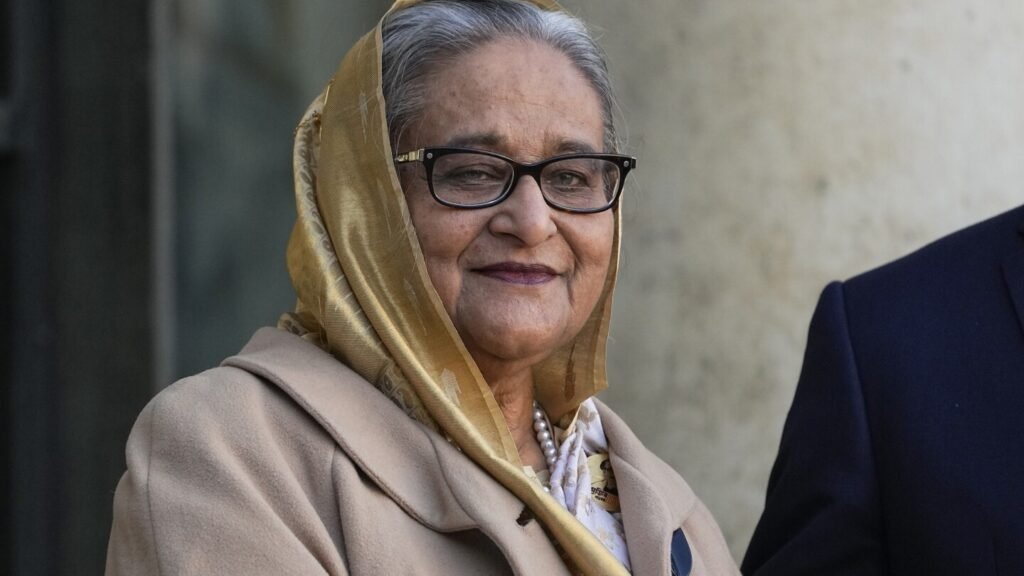DHAKA, Bangladesh (news agencies) — A special tribunal indicted Bangladesh’s ousted Prime Minister Sheikh Hasina on Thursday by accepting charges of crimes against humanity filed against her in connection with a mass uprising in which hundreds of students were killed last year.
A three-member panel, headed by Justice Golam Mortuza Mozumder, indicted Hasina, former Home Minister Asaduzzaman Khan and former police chief Chowdhury Abdullah Al-Mamun on five charges. Hasina and Khan are being tried in absentia.
Responding to the panel’s decision, Hasina’s Awami League party condemned the trial process and said the tribunal was a “kangaroo” court.
The tribunal opened the trial on June 5. Authorities published newspaper advertisements asking Hasina, who has been in exile in India, and Khan to appear before the tribunal. Hasina has been in exile since Aug. 5.
Bangladesh’s interim government, headed by Nobel Peace Prize laureate Muhammad Yunus, sent a formal request to India for Hasina’s extradition, but India has not responded. Khan is possibly also in India.
Al-Mamun, who was arrested and appeared before the panel on Thursday, pleaded guilty and told the tribunal that he would make a statement in favor of the prosecution at a later stage.
Chief Prosecutor Mohammad Tajul Islam later told reporters that Al-Mamun appealed to the judges to be an “approver.” It refers to a person who pleads guilty and who, in exchange for potential leniency or a reduced sentence, agrees to testify against their accomplices as a state witness.
“The tribunal accepted his plea to be an approver,” Islam said.
The prosecution offered a leaked audio of Hasina and other documents as evidence to the tribunal.
A petition by Amir Hossain, a lawyer appointed by the state for Hasina and Khan, for their names to be dropped from the case was rejected by the tribunal.
The tribunal fixed Aug. 3 for the opening statement by the prosecution and Aug. 4 for recording witness statements.
In a post on X, the Awami League accused the Yunus-led administration of manipulating the judiciary.
“People have lost their faith over the judicial system as Yunus regime has reduced this key state organ into a means to prosecute dissenters,” it said. “We condemn in strongest term the indictment against our party president and other leaders as we assert that this step marks another testament to the ongoing witch hunt against our party and weaponization of judiciary by Yunus regime.”
Hasina and the Awami League has previously criticized the tribunal and its prosecution team for connections to political parties, especially the Jamaat-e-Islami party.
Filing five charges, the prosecution argued Hasina was directly responsible for ordering all state forces, her Awami League party and its associates to carry out actions leading to mass killings, injuries, targeted violence against women and children, the incineration of bodies and denial of medical treatment to the wounded.
